Arts & Entertainment
Stage accolades
Out theater pros in several disciplines win big at Hayes Awards
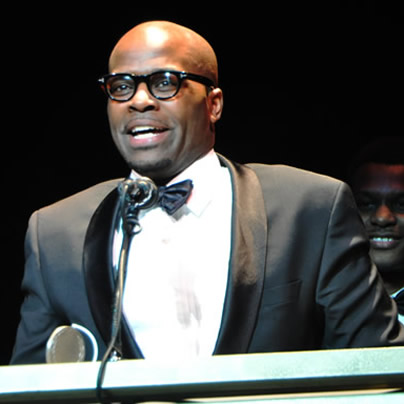
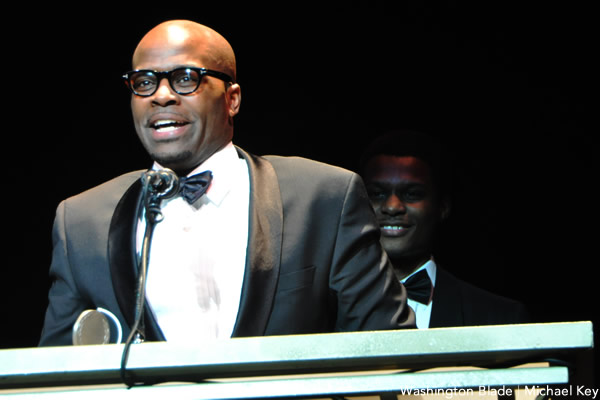
Cedric Neal at the 2013 Helen Hayes Awards. (Washington Blade photo by Michael Key)
“I came to Signature [Theatre] to do ‘Dreamgirls’ and met my dream guy,” said an ecstatic Cedric Neal as he accepted the Helen Hayes Award for outstanding supporting actor in a resident musical for playing fallen music idol Jimmy Early in the company’s take on the Motown-inspired musical. Filled with love and gratitude, but not too serious, describe both Neal’s boyfriend-acknowledging speech and the mood of this year’s ceremony held Monday night at the Warner Theatre.
Presented by theatreWashington, the Helen Hayes Awards have been doled out annually to reward excellence in Washington-area professional theater since 1984. Throughout 2012, 54 theaters produced 201 (150 plays and 51 musicals) productions that met eligibility requirements in the January-through-December judging cycle. From these shows, a pool of 48 volunteer judges selected the evening’s nominees and winners.
Monday’s ceremony was hosted by the familiar mellifluous tones of unseen announcer Robert Aubry Davis and changing pairs of presenters including gay theater professionals like actor Frank Britton, set designer Tony Cisek, sassy choreographer Maurice Hines and young Helen Hayes Award-winning actor Matthew DeLorenzo. Throughout the evening, six top notch local artists (including Delorenzo and Joshua Morgan — also gay) performed musical numbers — cute original songs as well as familiar tunes picked from the five nominated resident musical productions.
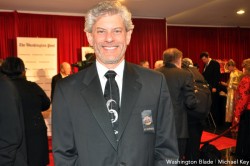
Serge Seiden (Washington Blade photo by Michael Key)
The evening got off to a quick start with Serge Seiden, who is gay, receiving outstanding director for a resident musical for MetroStage’s “Jacques Brel Is Alive and Well and Living in Paris.”
Bobby Smith won outstanding actor in a resident musical for his brilliant work in “Brel.” “I’m sorry I didn’t wear my tux,” said Smith (also gay). He also joked about martinis and old age medications (though he’s hardly old) before getting serious and thanking MetoStage’s artistic director Carolyn Griffin for holding the title role for him while he recuperated from hip replacement surgery. Smith’s leading lady Natascia Diaz deservedly received outstanding actress for her gorgeous, heartfelt performance in “Brel,” winning a competitive category that included big-voiced Nova Y. Payton who memorably played Effie in Signature’s “Dreamgirls.”
But despite “Brel’s” big wins, in the end “Dreamgirls” took outstanding resident musical. And after not winning any of its many nominations, the Folger Theatre’s Wild West-set “The Taming of the Shrew” rather unexpectedly won outstanding resident play.
The most nominated musical of the night — Toby’s Dinner Theatre’s “The Color Purple” — took home just one award: Theresa Cunningham won outstanding supporting actress in a resident musical. She thanked Toby’s for the role and for teaching her the challenges of waiting tables. Before leaving the stage, she urged audience members to always tip well. Cunningham tied with Priscilla Cuellar for her work in Toby’s “Legally Blonde.” The dinner theater’s rowdy supporters ensured that these two recipients received the loudest and longest applause of the evening.
Young New York-based playwright Paul Downs Colaizzo, a big proponent of same-sex marriage, won outstanding new work for “Really, Really,” his play about the selfish ways of young people. Colaizzo wasn’t on hand to pick up his award.
Victor Shargai, theatreWashington’s chairman, along with talented local actor Naomi Jacobson (whom Shargai said makes him laugh, cry and sometimes consider changing his sexual orientation), presented the Helen Hayes Tribute to Actors’ Equity Association (AEA) on the occasion of its 100th anniversary. Typically, the tribute has been awarded to big theater names like Tommy Tune, Edward Albee and Jerry Herman in recognition of exceptional achievement, but this year was different. Accepting on behalf of the actors’ union were AEA President Nicholas Wyman and Oscar-winning movie star and longtime AEA member Ellen Burstyn.
The John Aniello Award for Outstanding Emerging Theatre Company (named for Shargai’s late partner, an avid supporter of D.C. theater) went to Dizzy Miss Lizzie’s Roadside Revue, a terrific rock/vaudeville infused musical troupe. Capital Fringe, D.C.’s amazing unjuried, self-producing, open access arts festival received the Washington Post Award for innovative leadership.
Awards are great, but it’s the ongoing work that really makes the D.C. theater community hum. So, like Monday’s event reiterated in word and lyric — “go see a show!”
A complete list of winners is here.
Photos
PHOTOS: ‘ICE Out For Good’ Sunday protests
Northern Virginia demonstrations among nationwide protest
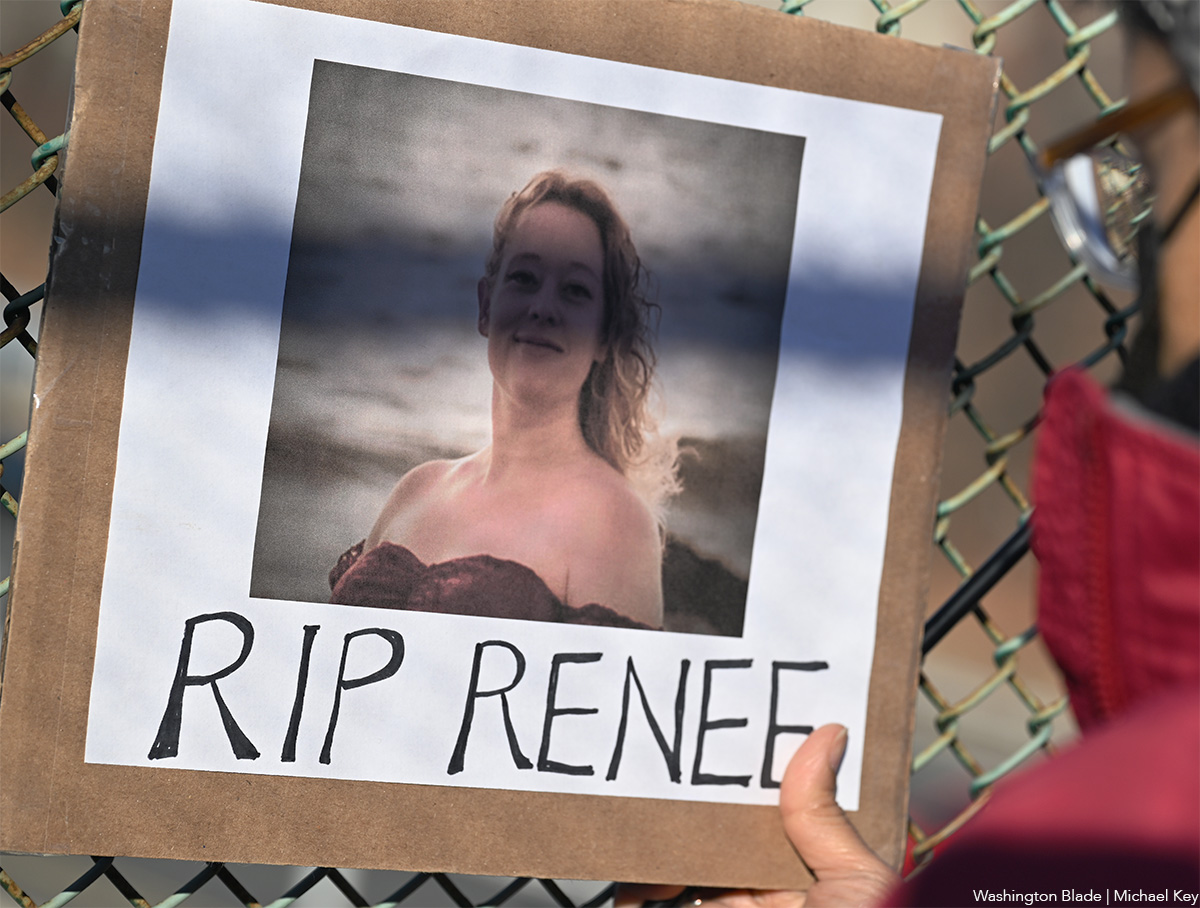
“ICE Out For Good” demonstrations were held in the Northern Virginia municipalities of Haymarket, Annandale and Arlington, among others, on Sunday, Jan. 12.
Nearly 1,200 similar actions were scheduled nationwide over the weekend, according to a statement from organizers.
Demonstrations in D.C. against ICE included a protest march on Friday and a march around the White House on Saturday.
(Washington Blade photos by Michael Key)
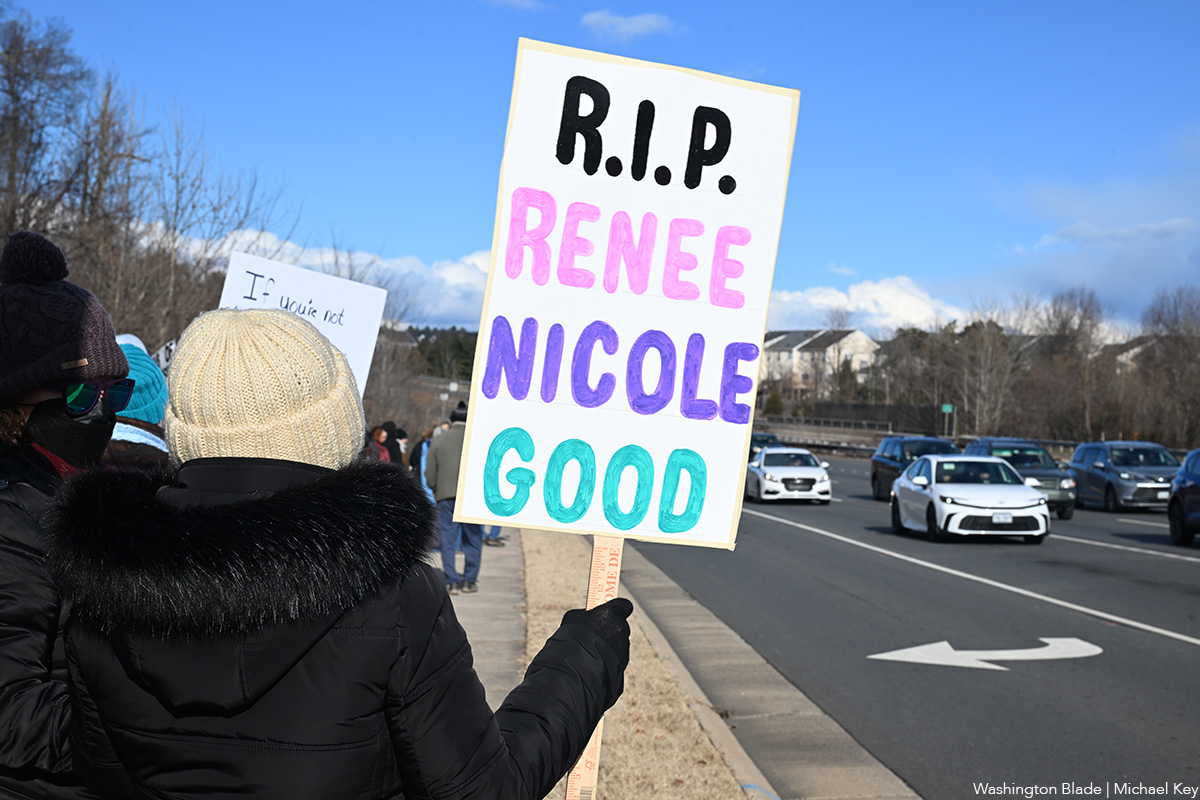
View on Threads
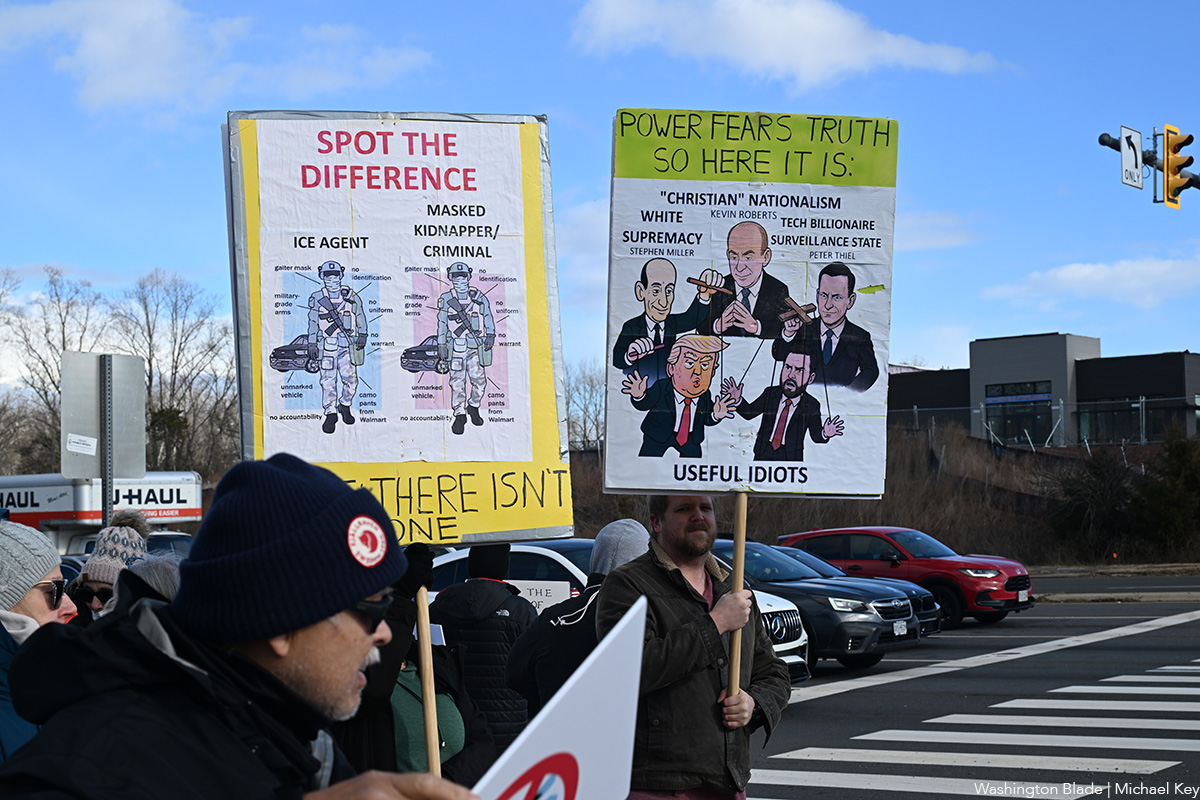

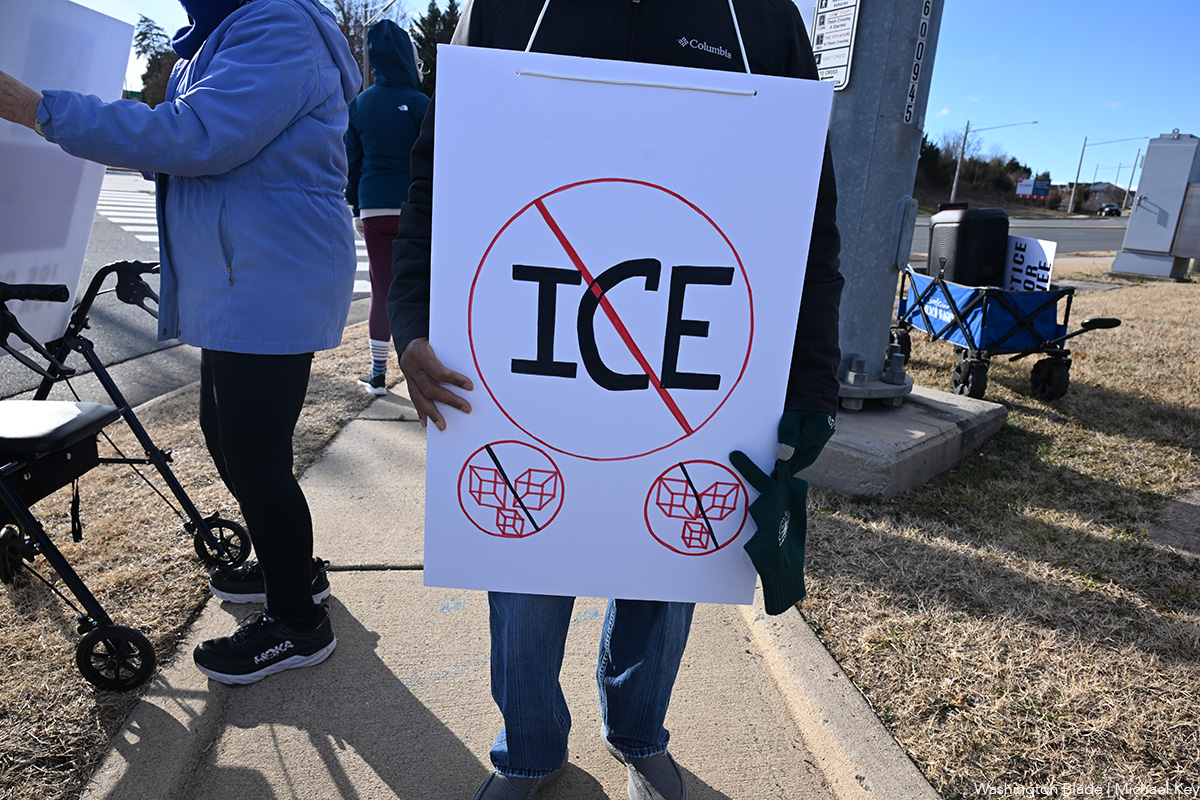
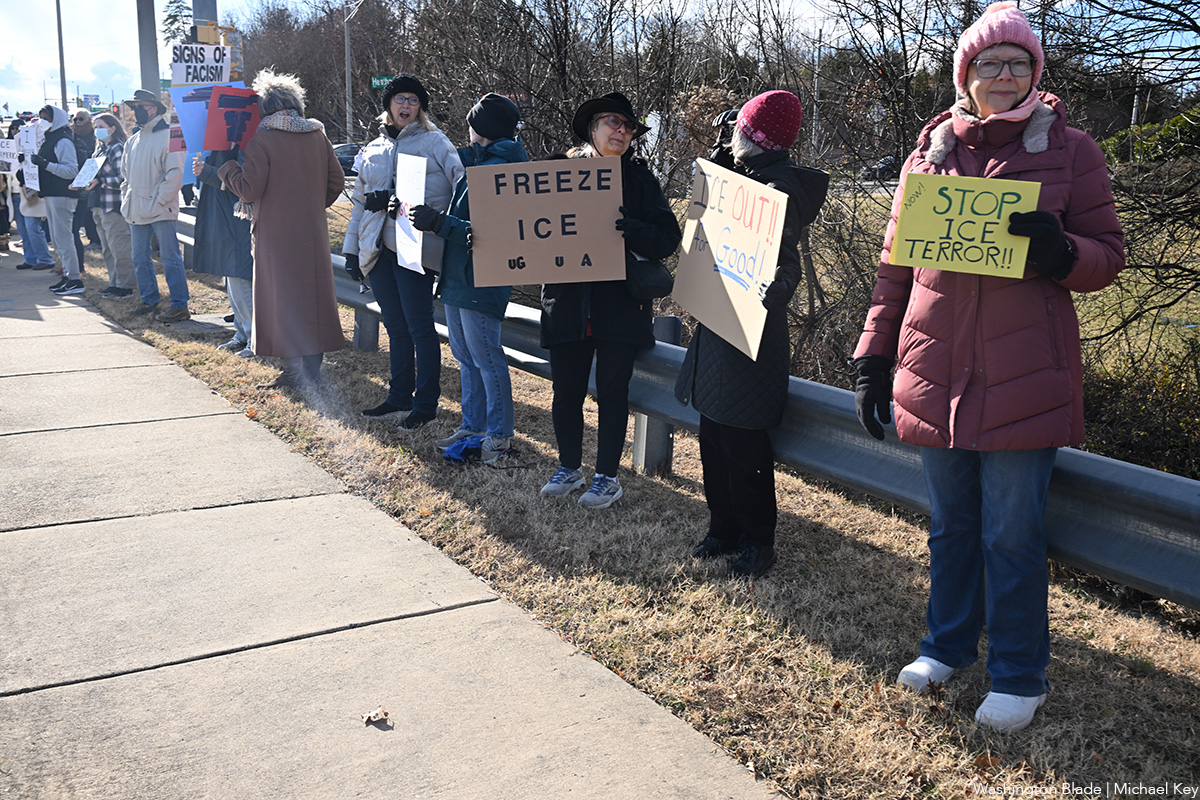
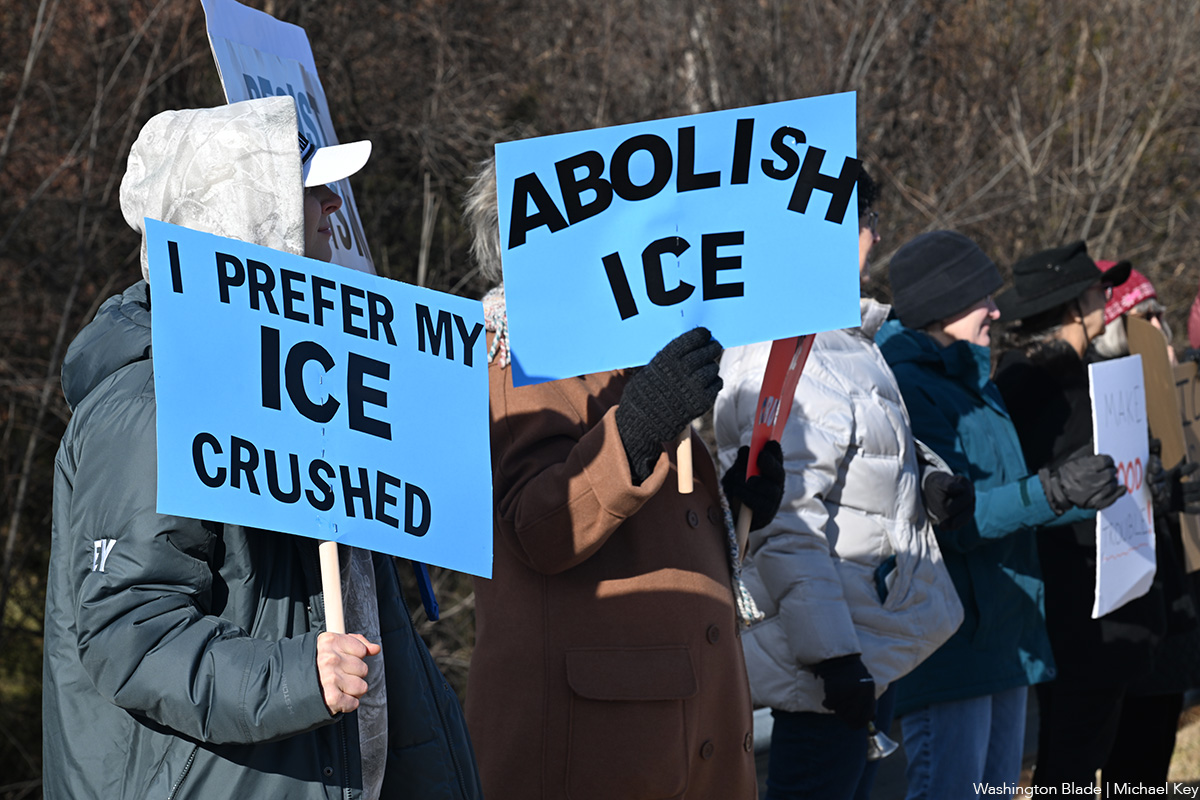
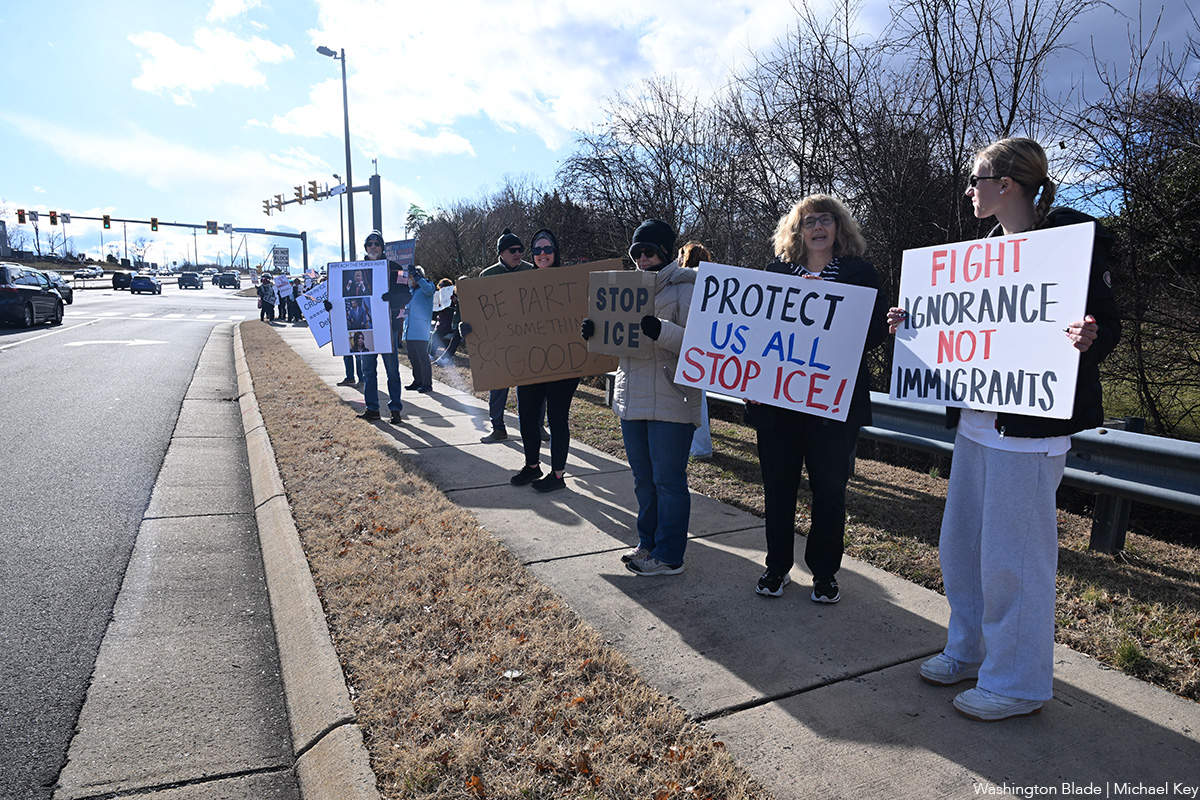
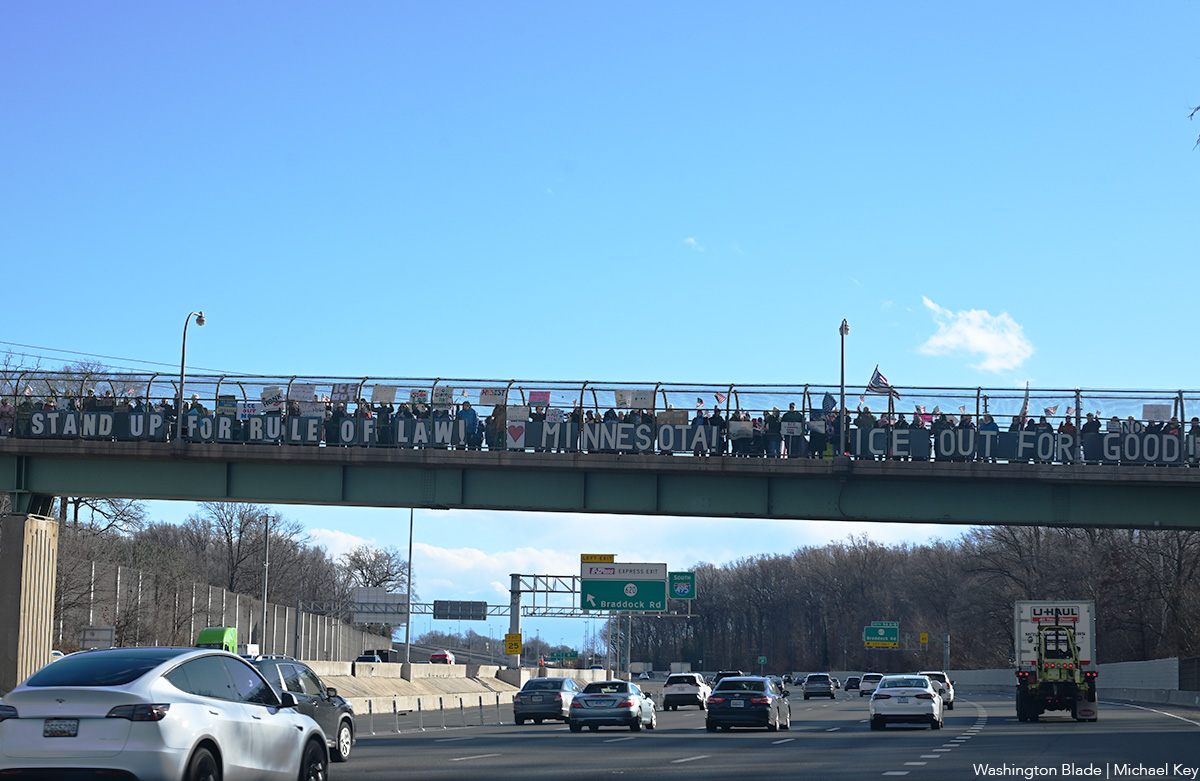
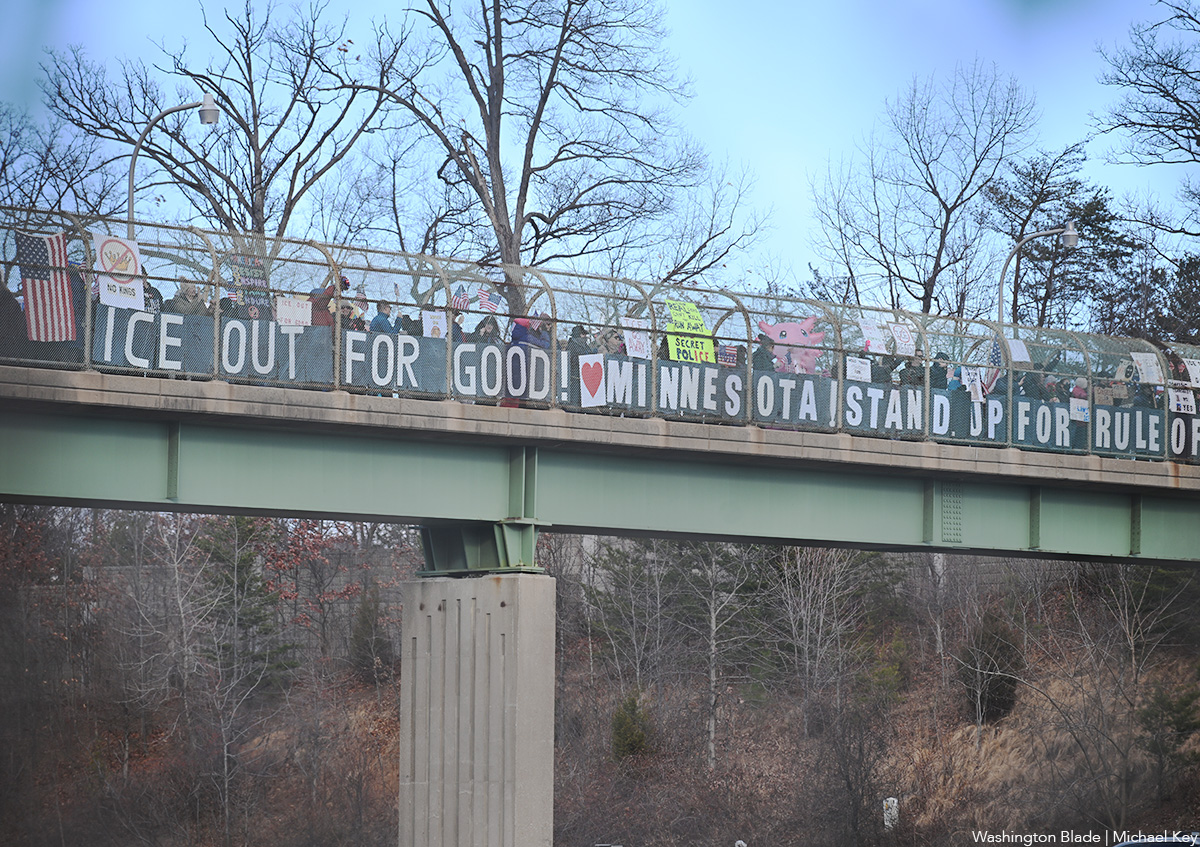
View on Threads
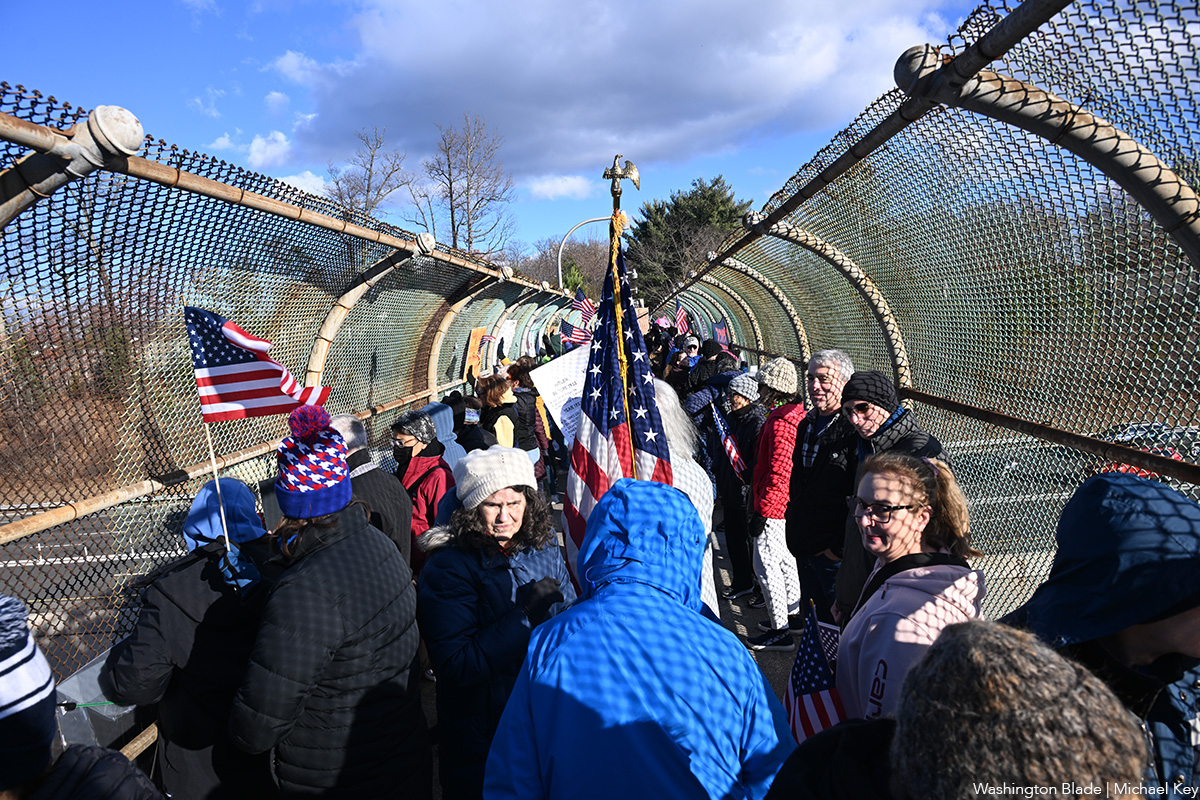
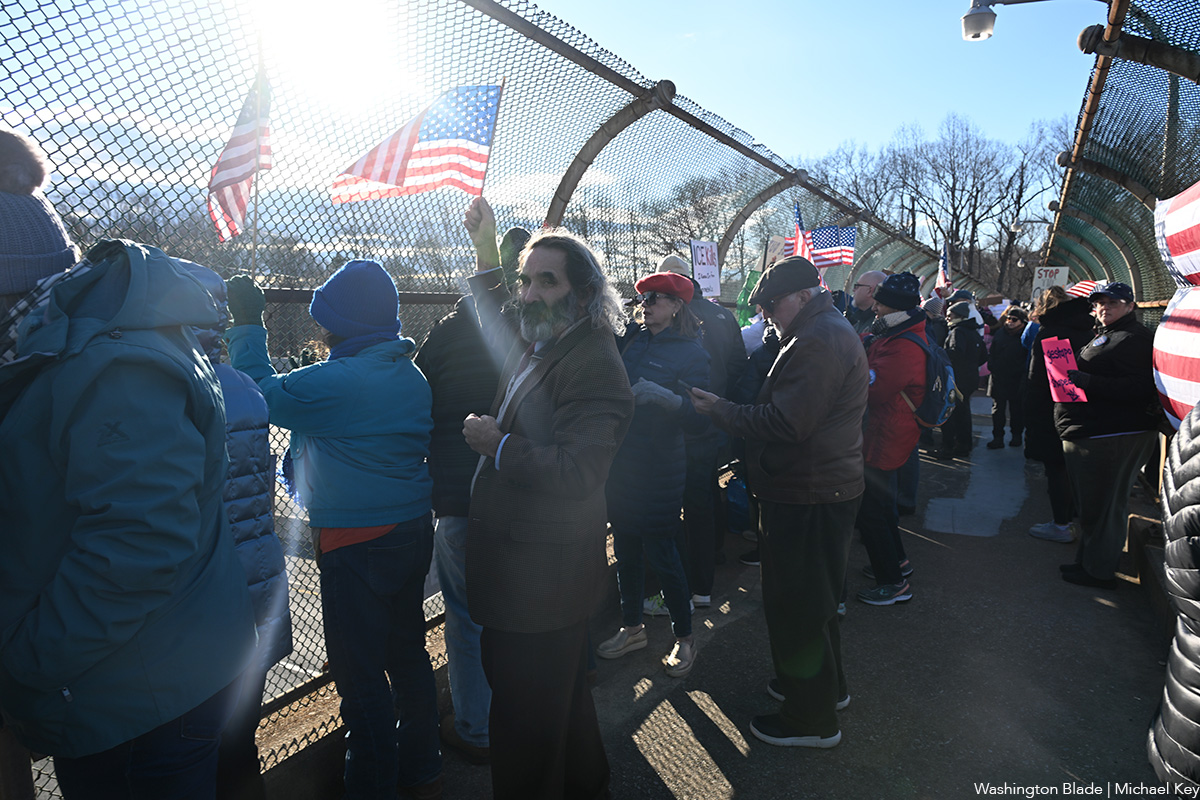
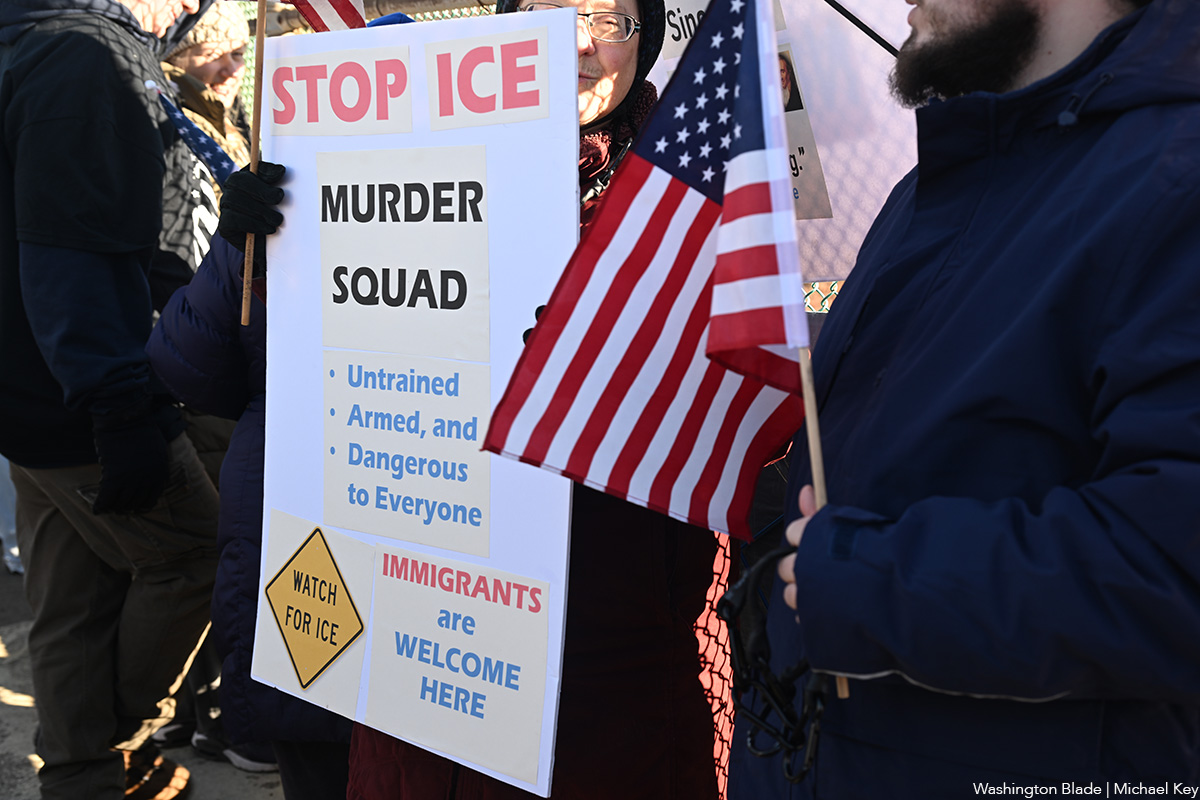
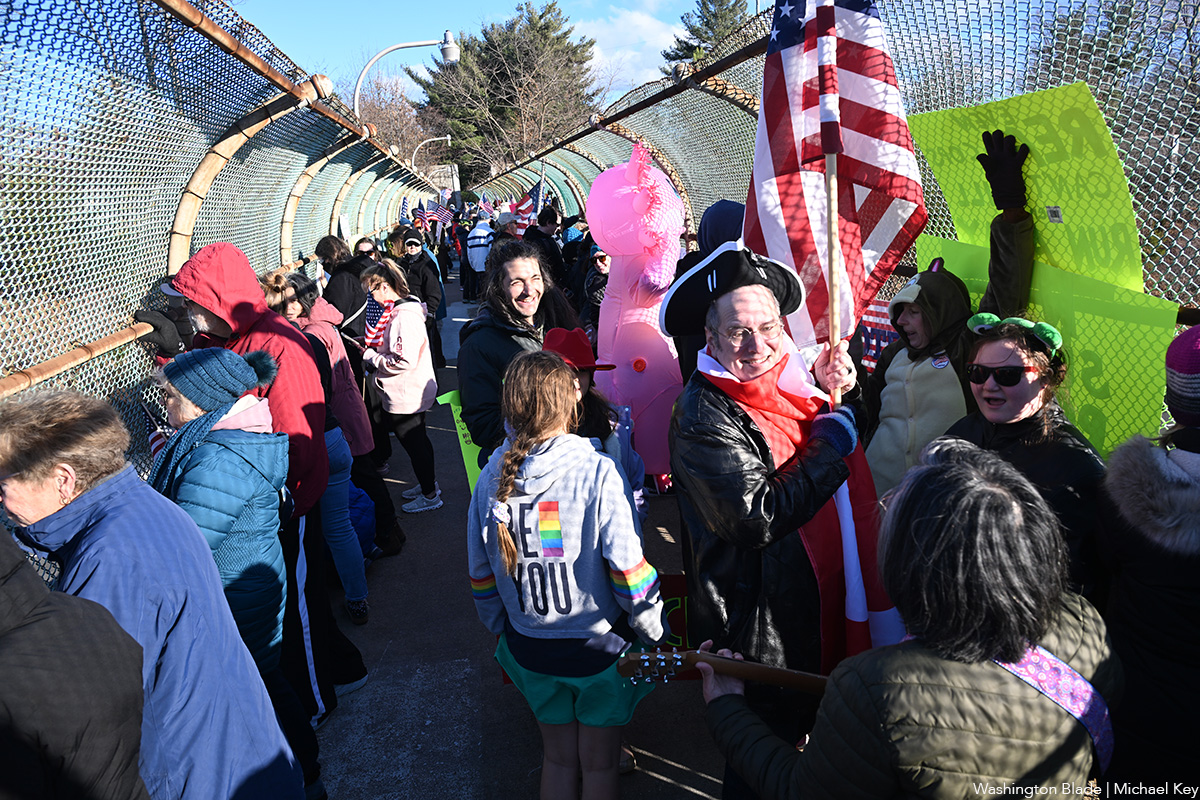
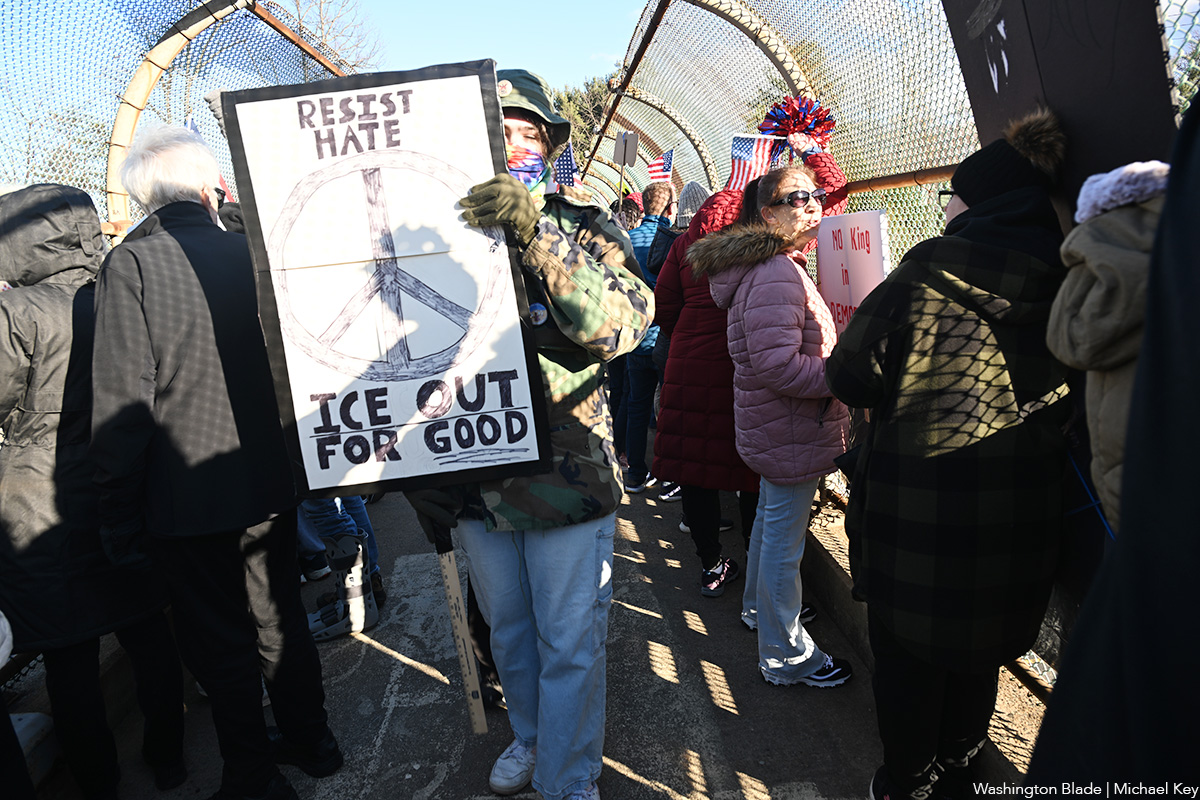
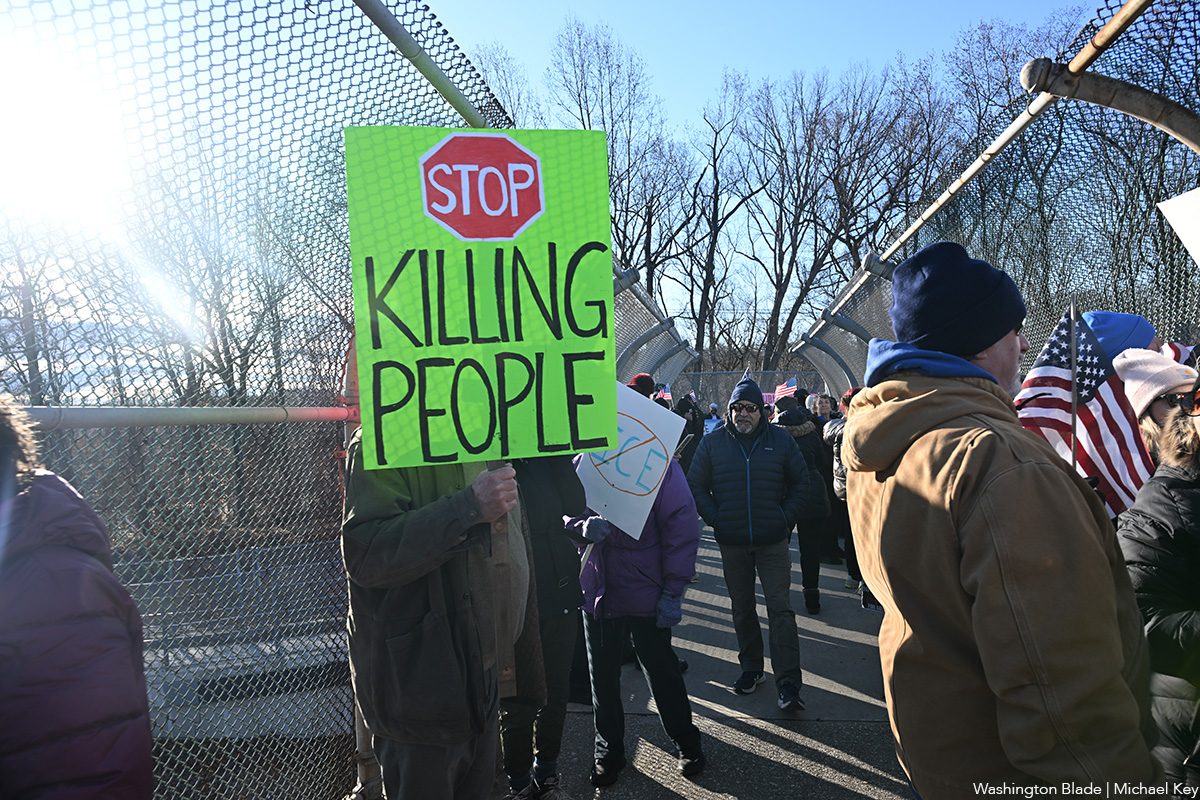
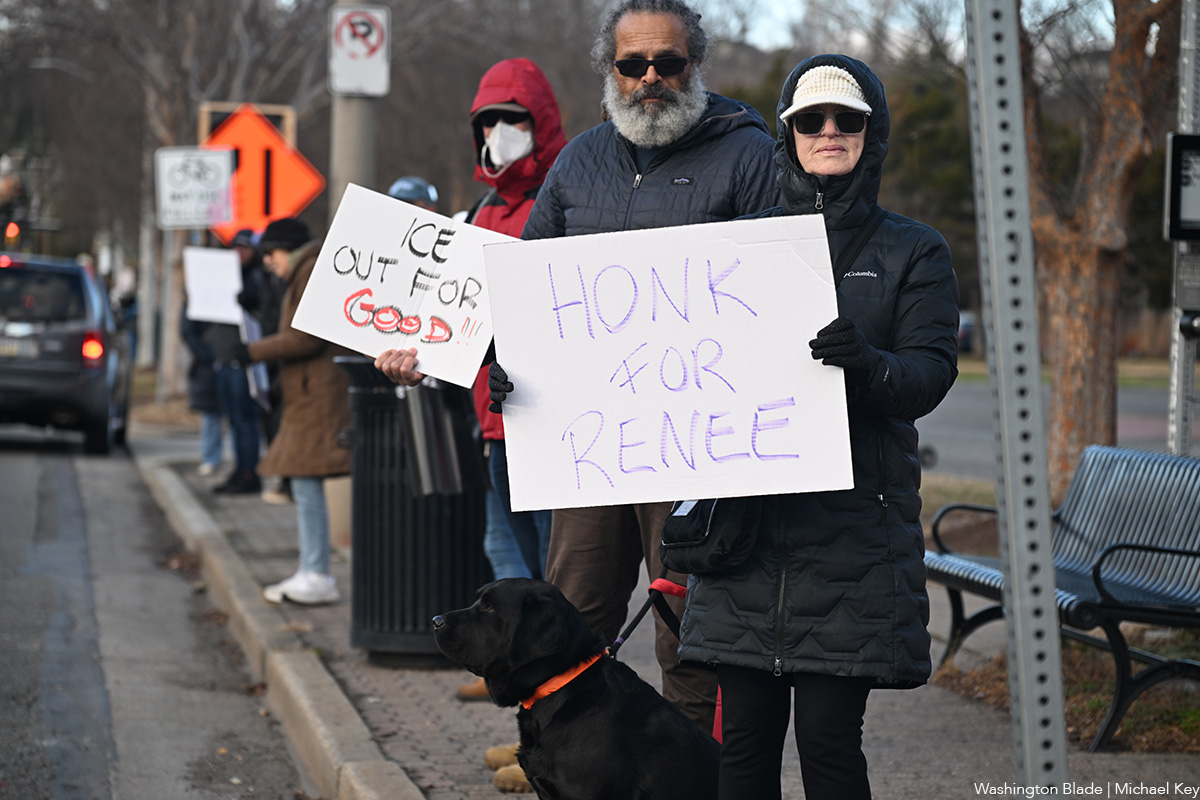
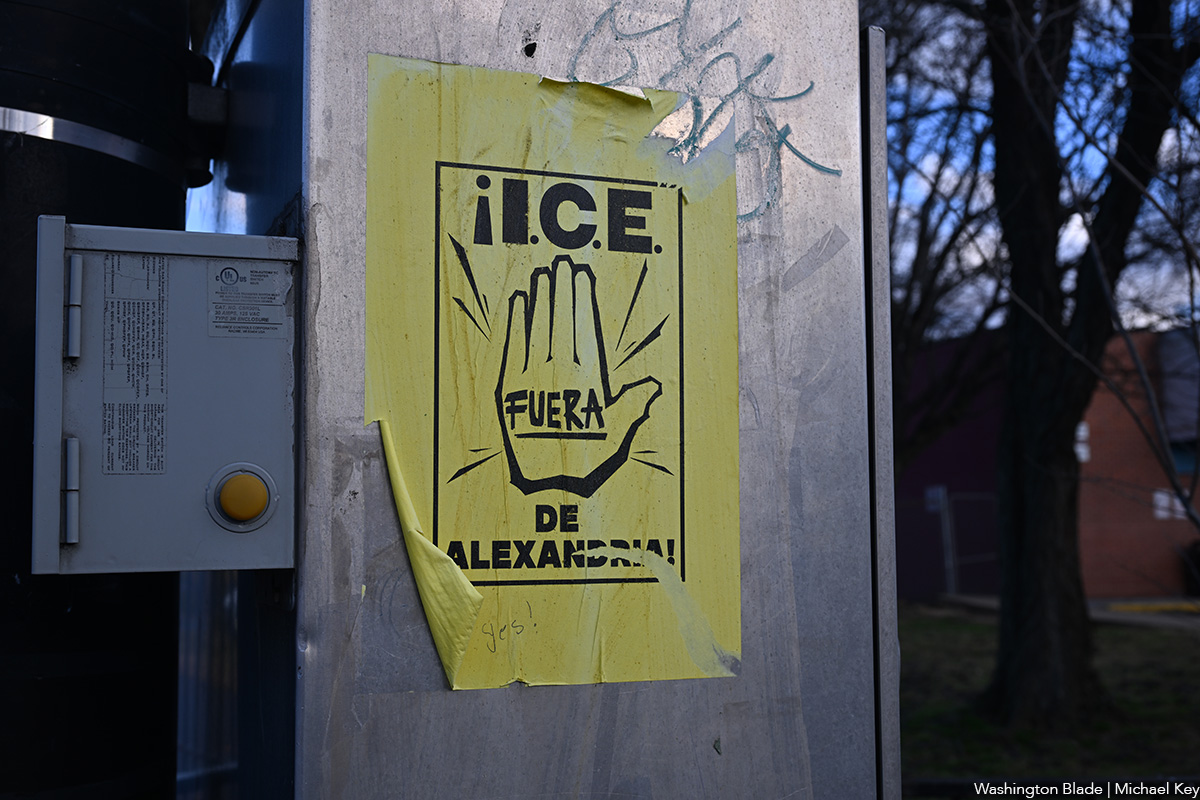
Theater
Ford’s ‘First Look’ festival showcases three new productions
A chance to enjoy historical dramas for free before they’re completed
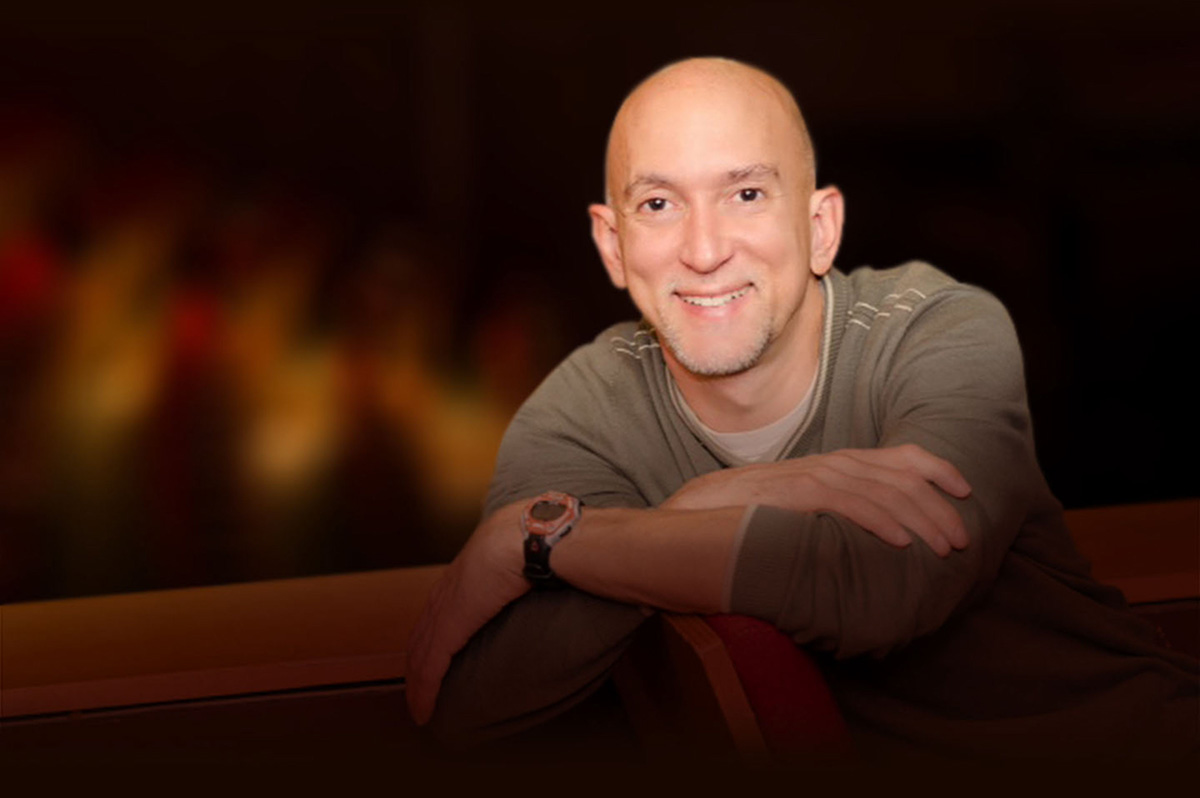
The Ford’s Theatre Legacy Commissions: A First Look – 2026
Jan. 16 & 17
Ford’s Theatre
511 Tenth St., N.W.
FREE
Fords.org
When Ford’s Theatre debuted its new plays festival, “A First Look,” in 2023, it was unclear whether people would come for the staged readings.
“Before the pandemic if you announced the reading of a play, 12 people might show up,” says José Carrasquillo, director of artistic programming at Ford’s Theatre. “Since then, we’ve experienced comparatively massive turnout. Maybe because it’s cheap, or because of the very newness of the works.”
This year’s fourth edition showcases readings of three pieces currently in varied stages of development. The free, two-day festival offers audiences a chance to encounter historical dramas long before they’re completed and fully produced. None are finished, nor have they been read publicly. And befitting the venue’s provenance, the works are steeped in history.
The festival kicks off with “Springs” by playwright Jeanne Sakata and directed by Jessica Kubzansky. Commissioned by The Ford’s Theatre Legacy Commissions, it’s the both epic and personal story of Sakata’s Japanese American family including her grandfather’s experience in an internment camp.
“Sakata’s immigrant grandfather was an exceptionally skilled farmer who helped to stave off starvation in the camp. Still, he never gave up on the idea that he belonged in America. It’s very much a story of today,” says Carrasquillo.
Unlike “Springs,” the festival’s two other works weren’t commissioned by Ford’s. But they both fit the history brief and likely will benefit from the exposure and workshopping.
“Providence Spring,” by California based playwright Richard Helesen and directed by Holly Twyford, portrays Clara Barton (played by local favorite Erin Weaver) as a hero beyond the Red Cross whose then-radical initiatives included cataloguing the Civil War dead, many pulled from mass graves.
Directed by Reginald L. Douglas, “Young John Lewis: Prodigy of Protest” explores a slice from the life of the legendary civil rights activist and longtime congressman. With book and lyrics by Psalmayene 24 and music by Kokayi this collaboratively staged reading between Ford’s and Mosaic Theater is slated to premiere fully produced at Mosaic as a 90-minute musical in the spring of 2026.
“When I was hired at Ford’s in 2018, we began discussing hiring writers who do historical drama,” says Carrasquillo. “Our intention was resolute, but we didn’t do it right away. It took getting through the pandemic to revisit the idea.”
At the same time, the racial reckoning spurred Ford’s to hire playwrights of color to tell stories that had previously been forgotten or ignored.
For Carrasquillo, who is gay, the impulse to commission was crystalized when he saw the film “Hidden Figures,” a true story about “three brilliant African-American women — at NASA during the Space Race, overcoming racial and gender discrimination to make crucial contributions to America’s spaceflight success.” He says, “the film floored me. How many stories like this are there that we don’t know about?”
One of the festival’s happiest experiences, he adds, was the commission of playwright Chess Jakobs’s “The American Five” and its subsequent success. It’s the story of Martin Luther King Jr. and his inner circle, including Bayard Rustin (MLK’s brilliant, unsung gay adviser) leading up to the 1963 March on Washington. The play later premiered fully produced in Ford’s 2025 season.
Increasingly, the readings at Ford’s have become popular with both artists and audiences.
At Ford’s, Carrasquillo wears many hats. In addition to selecting plays and organizing workshops, he serves as an in-house dramaturg for some of the nascent works. But he’s not alone. Also helming the festival are senior artistic advisor Sheldon Epps, and The Ford’s Theatre Legacy Commissions advisor Sydné Mahone.
Because the plays are in development, comments from directors, dramaturgs, and the audience are considered and may become part of the playwrights’ rewrites and changes. If and when the play resurfaces fully produced, audience members might find their suggestion in the completed work.
Is this year’s festival queer influenced? Yes, both by those involved and the topics explored.
Carrasquillo explains, “While Sakata’s “Springs” is primarily about immigration, its message is relevant to the queer community. Civil rights are being taken away from us. We need this playwright’s story to know what has happened and what can happen to any of us.
“Many of Ford’s legacy commissions underscore the importance of civil rights in our country and that’s important to all of us. Queer and not queer.”
Bars & Parties
Mid-Atlantic Leather kicks off this week
Parties, contests, vendor expo and more planned for annual gathering
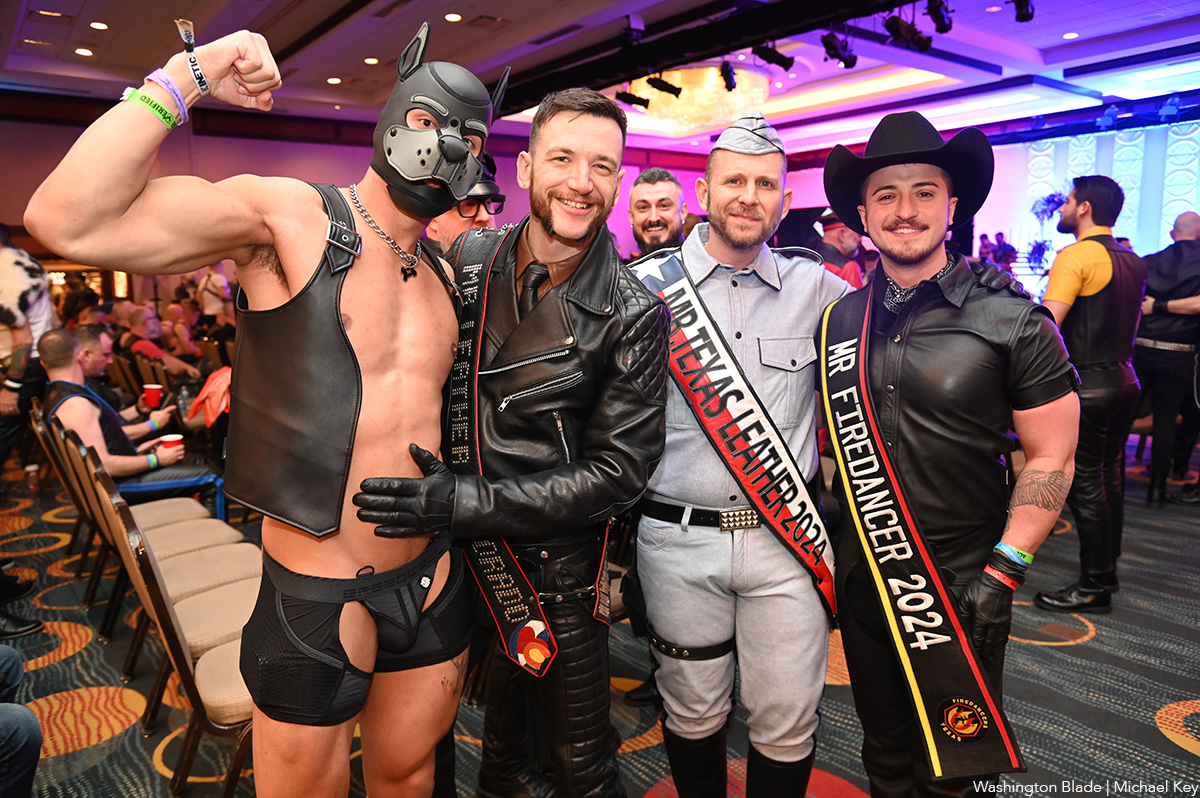
The Mid-Atlantic Leather Weekend will begin on Thursday, Jan 15.
This is an annual three-day event in Washington, D.C., for the leather, kink, and LGBTQ+ communities, featuring parties, vendors, and contests.
There will be an opening night event hosted the evening of Thursday, Jan. 15. Full package and three-day pass pickup will take place at 5:30 p.m. at Hyatt Capitol B. There will also be “Kinetic Dance Party” at 10 p.m. at District Eagle.
For more details, visit MAL’s website.
-

 Colombia5 days ago
Colombia5 days agoGay Venezuelan man who fled to Colombia uncertain about homeland’s future
-

 Arts & Entertainment5 days ago
Arts & Entertainment5 days ago2026 Most Eligible LGBTQ Singles nominations
-

 District of Columbia5 days ago
District of Columbia5 days agoKennedy Center renaming triggers backlash
-

 District of Columbia5 days ago
District of Columbia5 days agoNew interim D.C. police chief played lead role in security for WorldPride




















